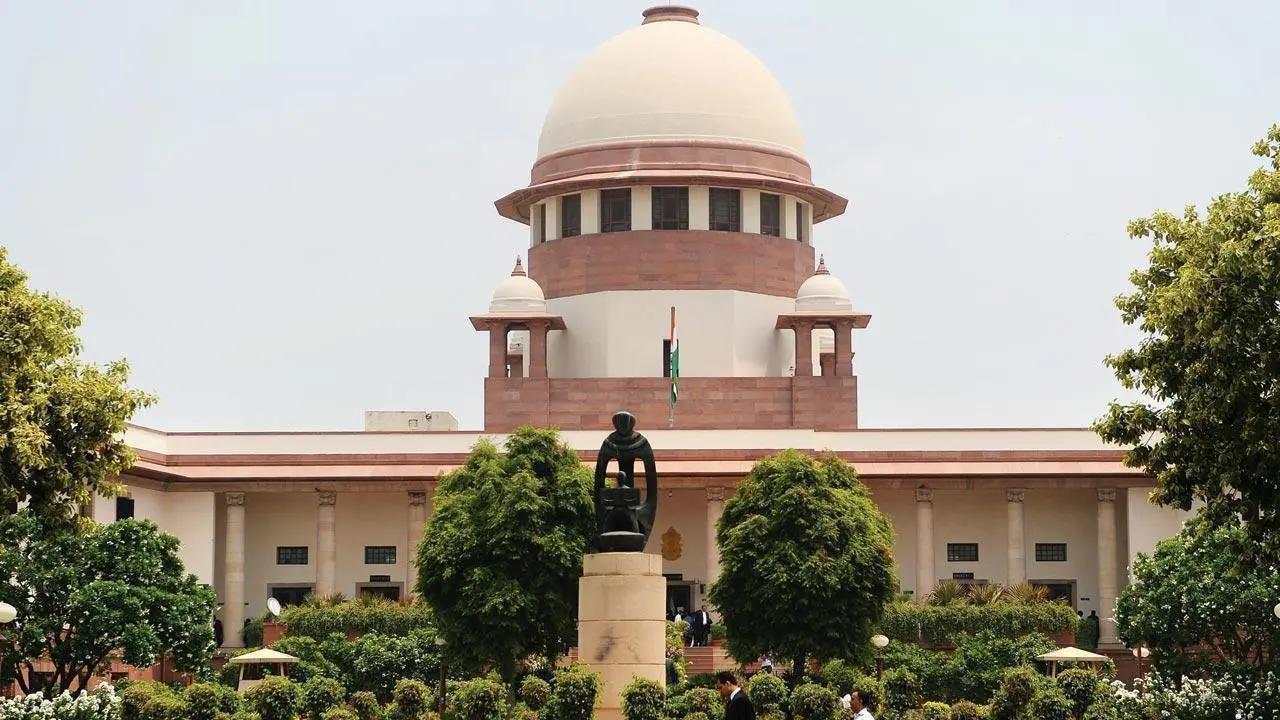A bench of Chief Justice Sanjiv Khanna and Justices Sanjay Kumar and KV Viswanathan took note of the submissions of senior lawyer S Muralidhar who said certain provisions of the Uttar Pradesh Prohibition of Unlawful Conversion of Religion Act, as amended last year, were “vague and overly broad”

The plea alleged the law infringed upon Articles 14, 19, 21 and 25 of the Constitution. Representational pic
The Supreme Court (SC) on Friday agreed to consider a plea challenging the constitutional validity of the 2024 amended Uttar Pradesh law on “unlawful religious conversion”, reported news agency PTI.
A bench of Chief Justice Sanjiv Khanna and Justices Sanjay Kumar and KV Viswanathan took note of the submissions of senior lawyer S Muralidhar who said certain provisions of the Uttar Pradesh Prohibition of Unlawful Conversion of Religion Act, as amended last year, were “vague and overly broad” and the ambiguity infringed upon free speech and religious propagation.
The Chief Justice of India (CJI), however, did not issue a notice on the plea for time being and said it will be heard along with other pending petitions on May 13, reported PTI.
The Supreme Court was hearing a public interest litigation (PIL) filed by Roop Rekha Verma, who hails from Lucknow, and others against the amended law.
The plea, filed through advocate Purnima Krishna, alleged that the amended law infringed upon Articles 14 (equality before the law), 19 (freedom of speech and expression), 21 (right to life and personal liberty), and 25 (freedom of religion) of the Constitution.
It also claimed that Sections 2 and 3 of the Act were “vague, overly broad, and lack clear standards”, making it difficult to determine what constituted an offence.
“This ambiguity infringes upon free speech and religious propagation, enabling arbitrary enforcement and discriminatory application. Penal laws must be precise; vague provisions violate constitutional principles by granting excessive discretion to authorities, failing to provide reasonable notice, and risking wrongful prosecution of innocent individuals,” the plea stated, adding that the ambiguity opens the door to arbitrary enforcement and discriminatory practices, especially against individuals seeking to practice or propagate their faith.
The plea further said penal laws must be defined with precision to prevent misuse by authorities and avoid the wrongful prosecution of innocent citizens.
It said the key concern is that the 2024 amendment expands the category of individuals authorised to file complaints without incorporating procedural safeguards.
"The law presumes malintent behind all religious conversions and views adult individuals with suspicion, thereby reducing them to subjects whose personal decisions must be validated by the state," it further said.
Challenging the proportionality of the prescribed punishment, which according to the petitioner was "excessive", the plea said, “The government, by assuming the role of protector of religious identities, encroaches on the individual's right to choose their faith."
It also stated that the lack of procedural safeguards subjects the accused and their families to prolonged legal battles, financial burdens, and social stigma, despite no substantive evidence of wrongdoing.
“Such an approach disregards the necessity for criminal laws to be clear, precise, and narrowly tailored to prevent wrongful prosecution,” it added.
Referring to Section 5 of the law, the petitioner claimed that it is wrongly assumed that all women, regardless of their background, are vulnerable to illegal conversions. This reinforces harmful stereotypes undermining their autonomy, the petitioner claimed.
“This gender-based presumption contradicts constitutional principles. Furthermore, the Act erodes the fundamental presumption of innocence by imposing a reverse; burden of proof, unfairly shifting the onus onto the accused and increasing the risk of wrongful convictions, thereby violating procedural fairness in criminal law,” the plea argued.
The top court is seized of various petitions challenging the validity of various state laws on religious conversions.
(With PTI inputs)
 Subscribe today by clicking the link and stay updated with the latest news!" Click here!
Subscribe today by clicking the link and stay updated with the latest news!" Click here!








